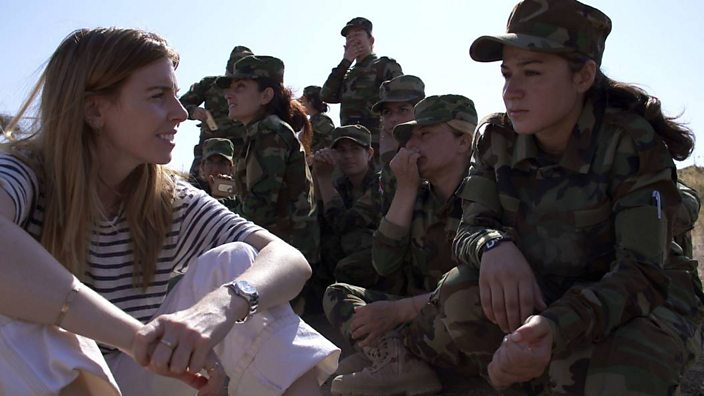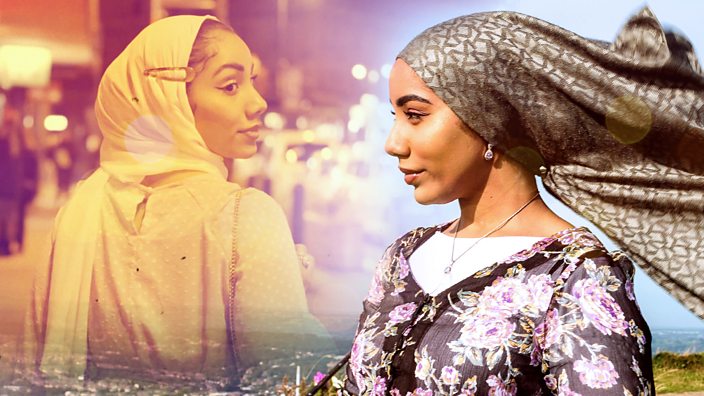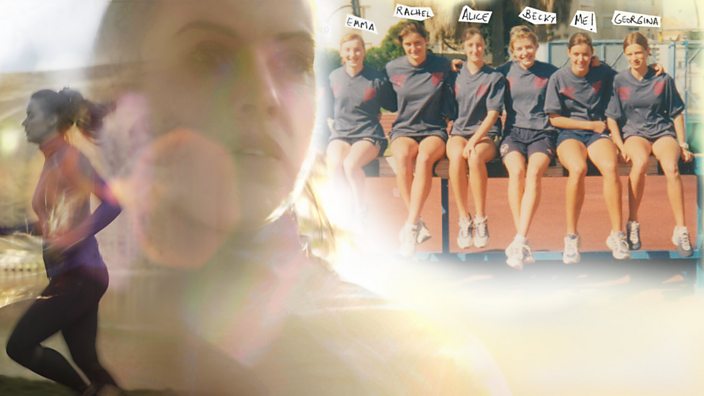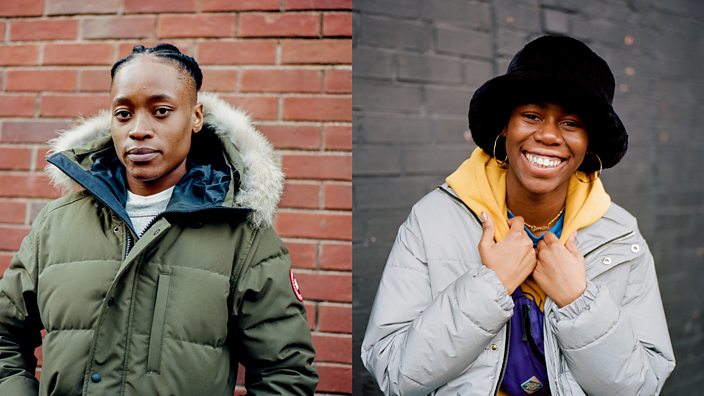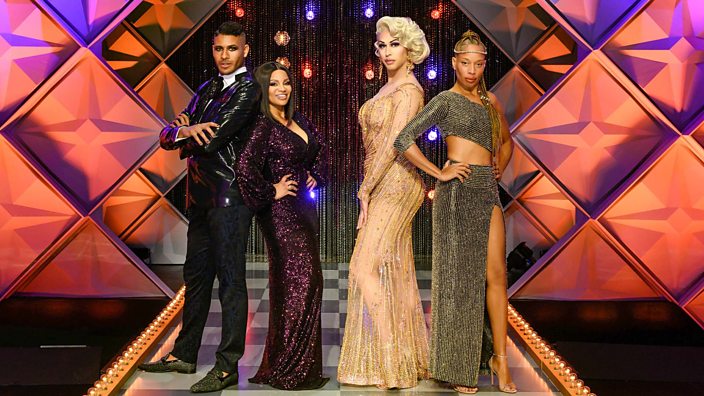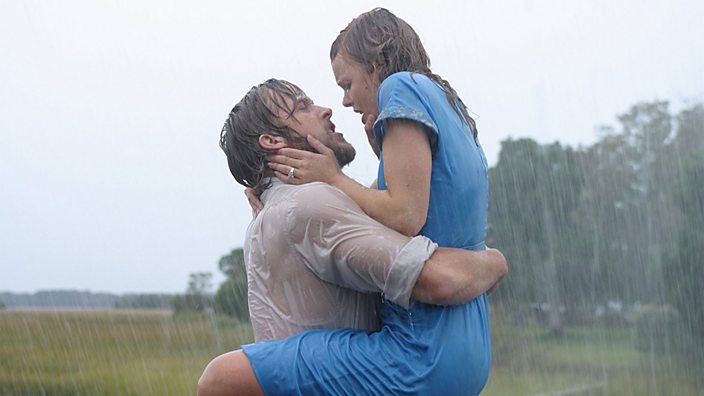Did you know that so-called Islamic State (IS) fighters think you can’t go to heaven if you’re killed by a woman?
Captain Khatoon Khider smiles wryly when she tells me this. She used to be a singer, but now leads an all-female battalion of former IS prisoners.
“We’ll kill thousands of IS soldiers and stop them all from entering paradise,” she said.
I spent two weeks in Northern Iraq with her battalion filming ‘Guns, Girls and ISIS’ for BBC Three.
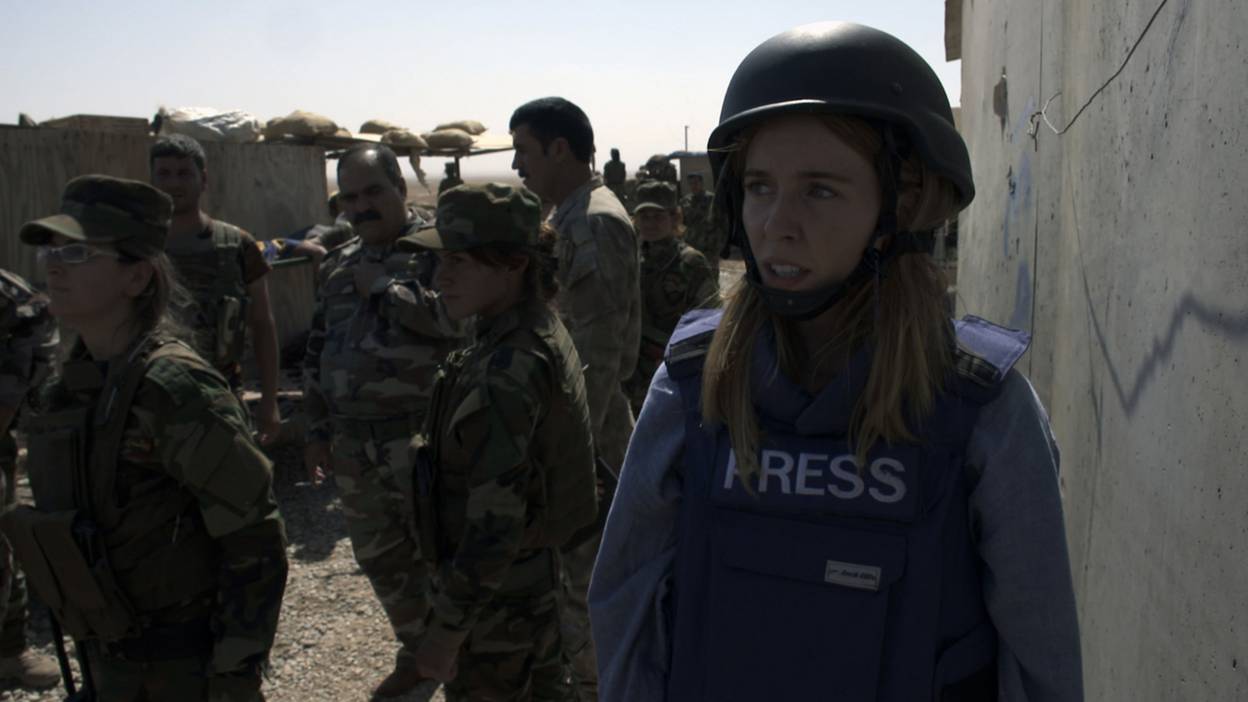 BBC Three
BBC Three
Mrs Khider’s Yazidi religion forbids violence, but after IS attacked her village two years ago, everything changed.
Thousands of people died, and thousands of women and children were taken to be sold as sex slaves.
Some have been rescued, but 3,500 Yazidi women and girls are still held by IS.
Mrs Khider and the girls in her all-female battalion are all survivors of one of the worst war crimes in recent history.
“We would never want to harm anyone,” Mrs Khider told me. “But now, we have no other choice but to kill them.”
The girls in the battalion are young, most are in their early 20s. They take selfies, do their make-up and listen to music, just like any other group of young girls.
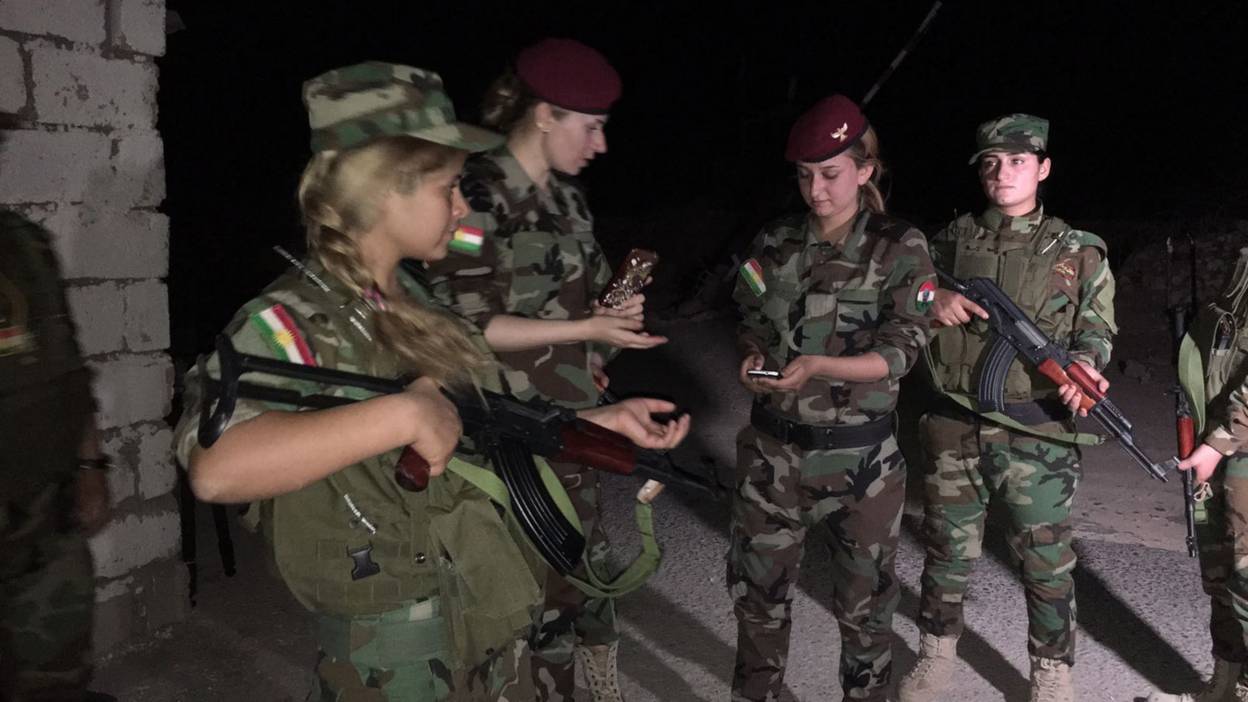 BBC Three
BBC Three
It’s disconcerting to think that many of them were raped, beaten and abused daily as sex slaves.
Nadiya, 17, is one of them.
“I saw the girls in this army, and I wanted to be strong like them,” she said when we spoke at the training camp.
When you sit in front of these girls and they tell you their stories, you watch their hearts break in front of you. It feels worlds apart from reading about a news story.
They told me about seeing their mothers being murdered, of babies being mutilated, of girls as young as nine raped in front of their eyes, or of their lost friends, who escaped by committing suicide.
Some were so distraught they could barely bring themselves to say the words.
They told me that after everything they’ve gone through, nothing can frighten them any more.
For many, their parents are dead, their sisters and friends are still in the hands of IS, and they live with constant fear.
It was time to fight back.
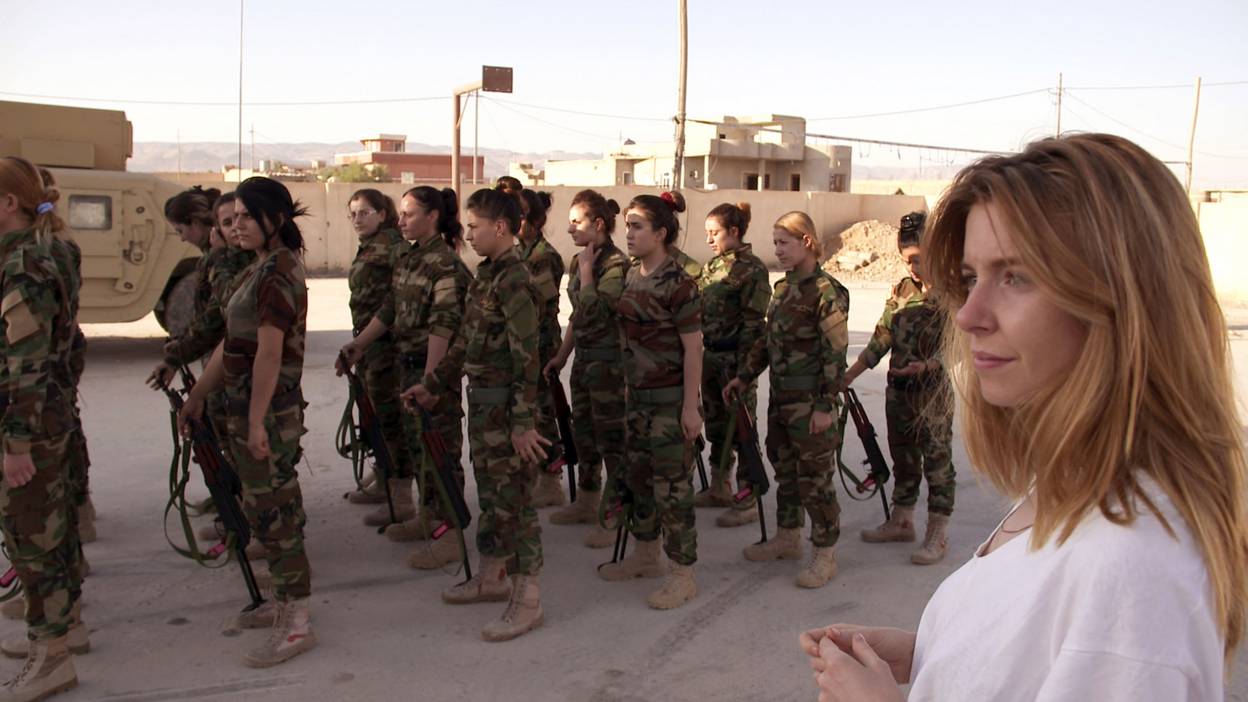 BBC Three
BBC Three
We left the camp to head to the front line.
On the way, one of the girls said to me, “I’m so happy. I feel like I’m going to a wedding”.
Another girl told me, “I don’t just want to kill one, I want to kill thousands. Even if I did kill thousands, it would not be enough”.
We met with the rest of the Peshmerga army on the front line. The men there regard the all-female battalion with real respect.
Commandar Xate tells me,
“They fight on the trenches like us. Before we did not have them. Now women and men, we all fight equally as one,”
Mrs Khider told me, “I wish I could go back in time. I keep telling myself, if I had started this a year before IS came to Sinjar, we would never have let them control us.”
The battle to reclaim the taken women rages on. Many of the girls are there now, on the front line, fighting side-by-side with the Peshmerga army and international forces.
I’ve travelled the world for the past decade, but the two weeks I spent with these girls was the most extraordinary trip I’ve ever been on.
Mrs Khider told me, “I joined the army because I cannot be a singer anymore, knowing that our women and girls are captured by IS.
When I see them coming back to us, that day I will sing, in this very uniform”.
As told to Catriona White
Stacey on the Frontline: Girls, Guns and ISIS aired at 10.45pm on BBC One Tuesday 16 January 2017.
Originally published 17 November 2016.
